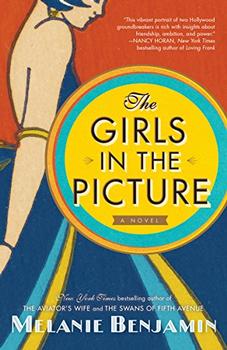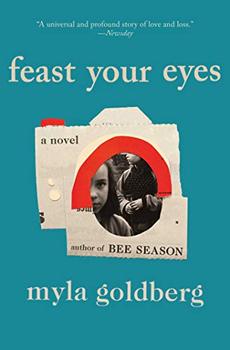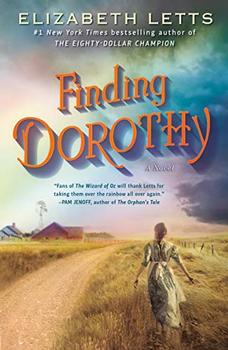Summary | Excerpt | Reading Guide | Reviews | Beyond the book | Read-Alikes | Genres & Themes | Author Bio

Melanie Benjamin's fine historical novel about the relationship between two women in the early days of American filmmaking does what all great novels must. It provokes deeper thought, more questions, and more ponderings on the nature of things.
It's 1914 and young San Franciscan Marion Benson Owen de Lappe Pike is already a twice-wed marriage cynic when she and husband #2 arrive in the then-sleepy town of Los Angeles. She's yearning to find a future for herself. He's content with tending his father's steel business. But soon Marion is questioning the decision to leave bustling, if staid, San Francisco for this place: "Everywhere I walked I encountered quaint little squares lined with the small adobe-style homes I'd seen in pictures of Mexico; colorfully tiled fountains centered the squares and people would lounge about, napping or reading or simply relishing being outdoors in the middle of February." So she plies her artistic talent to her job as an advertising illustrator and wonders if she is doomed to "sleep my way through a disappointing life I didn't remember choosing."
At around the same time, an ambitious former child actress known as Mary Pickford is straining under the weight of carrying the burden of family provider for her mother and fatherless siblings. An experienced stage actress, she initially balks at lowering herself to ply her trade in front of a moving picture camera. But she soon discovers she can earn more money acting in what were then called "flickers." First in New York City, later in Los Angeles, her curly-haired tresses, petite figure and childlike face adapt well to this new medium. She too has become a cynic about marriage since her matinee idol husband, Owen Moore, leaves Mary alone and wanting in their conjugal bed. However, he makes his desires clear to Marion (who has now changed her name to Frances Marion), when they meet at a party, but she adeptly redirects him to wrangle an introduction to his famous wife.
The two women know immediately they are kindred spirits. Despite drastically different personal histories – Fran is from a stable home with a good education, Mary has known only a life of suitcases and transacting tough business deals with niggardly theater owners – they share unbridled ambition for a future in moving pictures. Mary wants on screen recognition, more money and greater artistic control over the films she acts in. Fran doesn't know early on what she wants to do but, thanks to Mary, is allowed to find her niche: screenwriting.
Fran begins writing screenplays for Mary's silent films. "I liked it enormously!", she gushes. And between her sensitivity to the kinds of roles that best suit her friend and Mary's savvy understanding of what her fans want, the pair are off and running into a fabulously successful future. It's a future that holds both reward and heartbreak, financial wealth and personal tragedy.
Benjamin tells this story in alternating points of view. Fran's first person account is full of her; her personal thoughts and feelings leap off the page. Hers is a rich, full life told with all the color and sensibility of a talented writer. Mary's universal point of view passages keep the real woman at arm's length. We're getting only a bird's eye view of the beloved actress. Others have criticized Benjamin for this divergence. I think it plays magnificently into the way each woman looks at life and, most importantly, at their relationship. It is as intentional as it is provocative.
It is clear these women are ahead of their time, in the right place at the right point in a nascent industry. Of course there is a kinship, a wink and a nod to the sluggishness of stodgy businessmen who can't see the creative potential of moving pictures. But is theirs a friendship? The book jacket says so. Obviously Mary was Fran-the-writer's initial muse. Fran was the embodiment of all Mary needed to become obscenely famous and wealthy beyond her wildest dreams, penning one box office success after another for the actress. But does the writer owe anything to her muse? What does the actor owe her public? Does friendship come with an unspoken debt? And what about jealousy and resentment?
These are but a few of the ponderables with which The Girls in the Picture left me. The story may be historical but I believe Benjamin has made it as relevant as the real life dramas played out behind the scenes of every "flicker" that splashes across every screen every day. I quite enjoyed meeting these women and highly recommend this book to readers who like historical fiction, movies, and stories about strong, driven women.
![]() This review was originally published in The BookBrowse Review in March 2018, and has been updated for the
January 2019 edition.
Click here to go to this issue.
This review was originally published in The BookBrowse Review in March 2018, and has been updated for the
January 2019 edition.
Click here to go to this issue.

If you liked The Girls in the Picture, try these:

by Myla Goldberg
Published 2020
The first novel in nearly a decade from Myla Goldberg, the award-winning, New York Times bestselling author of Bee Season - a compelling and wholly original story about a female photographer grappling with ambition and motherhood, a balancing act familiar to women of every generation.

by Elizabeth Letts
Published 2019
This richly imagined novel tells the story behind The Wonderful Wizard of Oz, the book that inspired the iconic film, through the eyes of author L. Frank Baum's intrepid wife, Maud.
Your guide toexceptional books
BookBrowse seeks out and recommends the best in contemporary fiction and nonfiction—books that not only engage and entertain but also deepen our understanding of ourselves and the world around us.